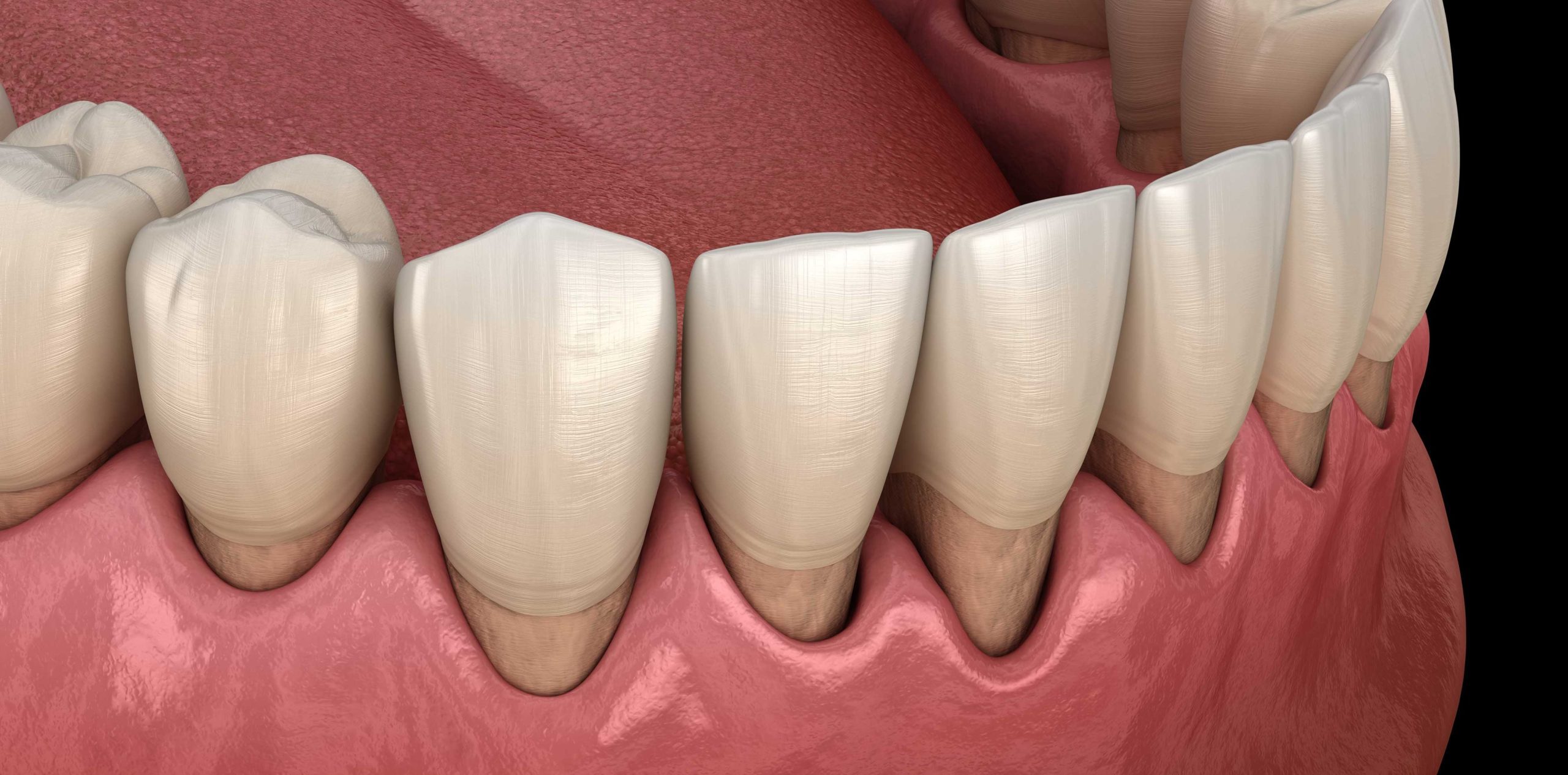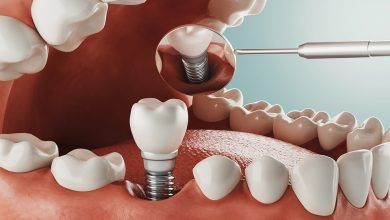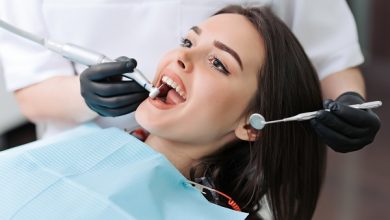Can Dental Cleaning Cause Gum Recession?

Dental cleaning can potentially cause gum recession due to the aggressive removal of plaque and tartar during the procedure. Gum recession occurs when the gum tissue surrounding the teeth pulls back, exposing the tooth root and potentially leading to tooth sensitivity and even tooth loss.
However, the risk of gum recession can be minimized by using proper techniques and tools during the cleaning process, as well as taking into account the individual’s overall oral health and gum condition. Regular dental visits and good oral hygiene practices can also help prevent gum recession.
The Causes Of Gum Recession
Gum recession can occur due to various reasons, and understanding the underlying causes is crucial for effective prevention and treatment. One common cause of gum recession is aging. As we age, our gums naturally recede, exposing the sensitive roots of the teeth and making them more susceptible to further damage. Another major cause is periodontal disease, a bacterial infection that attacks the gums and supporting tissues. When left untreated, this disease can lead to gum recession and significantly impact oral health. Additionally, poor oral hygiene can contribute to gum recession. Inadequate brushing, flossing, and regular dental cleanings can result in plaque buildup, which can irritate the gums and cause them to recede over time. Maintaining proper oral hygiene practices and addressing any signs of periodontal disease are essential steps in preventing gum recession.
Understanding Dental Cleaning
When it comes to our oral health, dental cleaning plays a crucial role in maintaining healthy gums. So, what exactly is dental cleaning? It is a professional procedure that removes plaque, tartar, and stains from our teeth and gums. Regular dental cleaning is important to prevent various dental issues, including gum recession.
Dental cleaning involves several steps, including a physical examination of your mouth, removing plaque and tartar, flossing, and polishing your teeth. The procedure is usually performed by a dental hygienist or a dentist. By removing plaque and tartar, dental cleaning helps to minimize the risk of gum infection and inflammation, which are the main causes of gum recession.
It is recommended to schedule a dental cleaning every six months to ensure the optimal health of your gums. Regular dental cleanings, along with good oral hygiene practices at home, are essential for preventing dental problems and maintaining a beautiful smile.
The Impact Of Dental Cleaning On Gum Health
Dental cleaning plays an essential role in maintaining good oral hygiene and preventing gum diseases. However, some concerns have been raised about its potential impact on gum recession. While dental cleaning itself does not directly cause gum recession, it is important to be aware of the potential risks and factors that can influence this condition.
Can Dental Cleaning Cause Gum Recession?
Contrary to popular belief, dental cleaning alone does not cause gum recession. In fact, regular professional cleaning is necessary to remove plaque and tartar buildup, which can contribute to gum disease. However, aggressive cleaning techniques or improper use of dental instruments may lead to gum tissue damage, inflammation, or recession in some cases.
Potential Risks Of Dental Cleaning
Though rare, there are potential risks associated with dental cleaning that may indirectly contribute to gum recession. These risks include sensitivity, bleeding gums, irritation, or damage to the gum tissue. It is crucial to undergo dental cleaning by a skilled professional who follows proper techniques to minimize these risks.
Factors That Can Influence Gum Recession
Gum recession can be influenced by various factors, such as genetics, poor oral hygiene, smoking, aggressive brushing, teeth grinding, hormonal changes, or underlying health conditions. Regular dental cleanings, accompanied by good oral care practices, can help prevent gum disease and reduce the risk of gum recession.
Aggressive Dental Cleaning Techniques
Gum recession is a common concern among individuals who undergo dental cleaning procedures. Aggressive cleaning techniques can lead to this condition, causing the gum tissue to pull away from the teeth, exposing the roots and leaving them vulnerable. It is crucial to understand the importance of gentle oral care to prevent this issue from occurring.
When dental cleaning is performed aggressively, it can damage the delicate gum tissue. The excessive force applied during the procedure can cause the gums to recede over time. To avoid this, it is essential for dental professionals to use gentler techniques and tools that do not exert excessive pressure on the gums.
To prevent gum recession, it is advisable to follow preventive measures. Regular and proper oral hygiene, including brushing gently with a soft-bristled toothbrush and using dental floss, can help maintain the health of the gums. Additionally, seeing a dentist regularly for professional check-ups and cleanings is vital. Dental professionals are trained to perform gentle dental cleanings, ensuring the gum tissue remains protected.
| Importance of Gentle Oral Care: | How Aggressive Cleaning Can Lead to Gum Recession: | Preventive Measures to Avoid Aggressive Cleaning: |
|---|---|---|
| Gentle oral care preserves gum health | Aggressive cleaning damages delicate gum tissue | Regular brushing and flossing |
| Soft-bristled toothbrushes are recommended | Excessive force causes gums to recede | Schedule regular dental check-ups |
| Dental professionals perform gentle cleanings | Exposed roots and increased vulnerability | Use tools that do not exert excessive pressure |
Personal Oral Hygiene Practices
Personal oral hygiene practices play a crucial role in maintaining gum health and preventing gum recession. When it comes to brushing techniques, it is important to use a soft-bristled toothbrush and brush gently in circular motions to avoid putting excessive pressure on the gums. Avoid brushing too vigorously as it can cause the gum tissue to recede. Flossing habits are also important for gum health. Regular flossing helps remove plaque and food particles from between the teeth and along the gumline, preventing gum inflammation and recession. Maintaining a correct oral care routine is essential for gum health. This includes brushing twice a day for at least two minutes, flossing once a day, and using an antimicrobial mouthwash to kill bacteria. By following these practices, you can maintain healthy gums and minimize the risk of gum recession.

Credit: barriedentist.ca
Underlying Medical Conditions
Underlying medical conditions can contribute to gum recession. Systemic diseases, such as diabetes and autoimmune disorders, can affect gum health and increase the risk of gum recession. It is important for individuals with these conditions to work closely with their dentist to develop a personalized treatment plan.
Some medications can also impact gum health. Certain drugs, such as anticonvulsants and immunosuppressants, may cause gum tissue to become inflamed, leading to gum recession. Patients taking these medications should inform their dentist so that appropriate preventive measures can be taken.
Patients with pre-existing medical conditions should consider certain factors during dental cleanings. Dentists and hygienists must be aware of the patient’s medical history to ensure that the cleaning procedure does not aggravate any existing conditions. Extra caution must be taken to avoid any unnecessary trauma to the gums.
| Dental Cleaning Considerations for Patients with Pre-existing Conditions | |
|---|---|
| 1. Provide a thorough medical history to the dentist. | 2. Inform the dentist about any medications being taken. |
| 3. Discuss any concerns or symptoms related to gum health. | 4. Follow proper oral hygiene practices at home. |
| 5. Schedule regular dental check-ups to monitor gum health. | 6. Seek immediate dental attention if experiencing any abnormal gum symptoms. |
Importance Of Regular Dental Check-ups
Regular dental check-ups play a crucial role in maintaining optimal gum health and preventing gum recession. These check-ups help identify and address early signs of gum disease, which if left untreated, can lead to gum recession. At these appointments, your dentist or dental hygienist will perform a thorough examination of your teeth and gums, looking for any signs of inflammation or infection. They will also conduct a professional dental cleaning, removing plaque and tartar buildup that can contribute to gum disease.
The frequency of dental check-ups depends on your individual oral health needs. For most individuals, visiting the dentist every six months is recommended. However, if you have a history of gum disease or other oral health issues, your dentist may recommend more frequent visits. During a dental check-up, you can expect to have your teeth cleaned, receive a thorough examination, and discuss any concerns or symptoms you may have.
Proper Oral Hygiene Routine
Having a proper oral hygiene routine is crucial for maintaining healthy gums and preventing gum recession. When choosing a toothbrush, opt for a soft-bristled brush to avoid causing damage to your gums. Combine this with a fluoride toothpaste to effectively remove plaque and protect against tooth decay.
Tooth brushing techniques should be gentle yet thorough. Brush gently in circular motions to clean your teeth and gums without causing irritation. Flossing is equally important to remove plaque and food particles from between your teeth. Be sure to use a gentle back-and-forth motion when flossing to avoid injuring your gums.
To maintain gum health, there are additional oral care products available. Consider incorporating an antimicrobial mouthwash into your routine to reduce plaque and gingivitis. Additionally, using an interdental brush or a water flosser can effectively clean difficult-to-reach areas.
By following these tips and maintaining a consistent oral care routine, you can greatly minimize the risk of gum recession and promote overall gum health.
Professional Dental Cleaning Alternatives
Professional Dental Cleaning Alternatives:
Non-Surgical Gum Treatments provide effective alternatives to traditional dental cleaning methods. These treatments can help prevent and manage gum recession, a common concern among dental patients.
| Laser Assisted Periodontal Therapy | Laser Assisted Periodontal Therapy (LAPT) is a minimally invasive treatment that uses dental lasers to target and eliminate bacteria and infected gum tissue. This helps to promote gum tissue regeneration and reduce gum recession. |
| Scaling and Root Planing | Scaling and Root Planing is a deep cleaning technique that removes tartar and plaque buildup from below the gumline. This treatment helps to smooth the tooth roots and promote gum reattachment, reducing the risk of gum recession. |
By exploring these non-surgical gum treatments, individuals can find alternatives to dental cleaning that can promote gum health and reduce the risk of gum recession.
Frequently Asked Questions For Can Dental Cleaning Cause Gum Recession?
Will My Gums Grow Back After Deep Cleaning?
No, deep cleaning cannot make your gums grow back. However, it can help prevent further gum disease by removing plaque and tartar buildup. Proper oral hygiene and regular dental visits are essential for maintaining healthy gums.
Can Teeth Cleaning Damage Gums?
Teeth cleaning may cause damage to gums if not done properly. It is important to have a skilled dentist or hygienist perform the cleaning to avoid irritating or harming the gums during the process. Effective oral hygiene and regular dental check-ups are crucial in maintaining healthy teeth and gums.
What Are The Side Effects Of Getting Your Teeth Cleaned?
Teeth cleaning may cause temporary sensitivity, tooth or gum pain, and bleeding.
Can A Dental Cleaning Damage Your Teeth?
Yes, dental cleanings are safe and unlikely to damage your teeth.
Conclusion
Dental cleaning is a necessary preventive measure to maintain oral health. While it is essential, there is a misconception that it may cause gum recession. However, with proper technique and regular care, the chances of gum recession during dental cleaning are minimal.
By scheduling regular dental cleanings and maintaining good oral hygiene practices, you can ensure a healthy smile for years to come.





One Comment